DENVER — This journey started like countless others have before: by scrolling through Buzzfeed on a work computer.
The article in question discussed the phenomenon of how Olympic gymnasts tend to do a big old belly flop when they fall from the uneven bars (which is what would inevitably happen if this author got anywhere near the uneven bars ... and not on purpose).
As it turns out, these belly flops are actually one of the safest ways for these world class athletes to fall while literally hurling their bodies in between tiny little bars and doing crazy contortions.
If you're unsure what I'm talking about, here's a flop:
Ouch.
However, this is the alternative to catching yourself with your arm, which is the thing most people would do in this situation, and also the thing that can lead to a broken wrist.
Here's why Olympian Shannon Miller wrote on her blog that it's bad:
"You should never try to stop your fall or brace yourself by sticking your arm out. I learned this the hard way when I reached out my hands during a wayward uneven bar dismount, dislocating and breaking my left elbow just 10 weeks prior to the 1992 Olympic Trials. After that I never once tried to break falls with my hands."
Point taken. This lesson about safe Olympics falling got me thinking about how to safely fall while trying other sports, since wipeouts are an inevitable part of competition.
> Unfortunately, the video above is not a compilation of wipeouts. However, you should still totally watch it if you're curious about who from Colorado is competing in the Tokyo Olympics.
Surfing
This breakdown of safe falling begins with a sport with the most practical of applications for the Colorado audience: surfing.
Here's a photo of what it looks like to fall while surfing in Olympic competition:

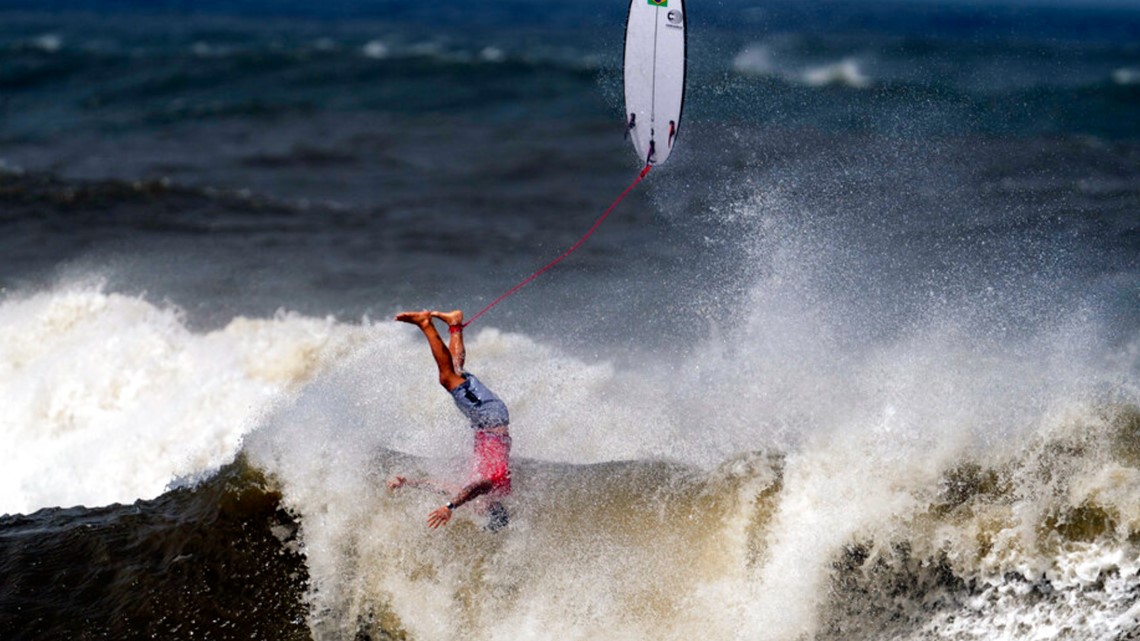
While falling into water seems inherently less painful than other surfaces, online research shows there are right and wrong ways to fall while surfing.
"The worst case scenario?" one article I read online says. "You might drown."
Point taken. To safely fall while surfing, Surfer Today says to fall off the side or back of the board if you can, cover your head with your arms, and push the surfboard away from you.
You'll likely spend some time underwater, so use your hands to protect your head from an impact with your surfboard and when the waves let up, hop back on your board and either ride to shore or keep trying to catch another one (hopefully with more success).
If you need more information, here's a 12-minute video about how to fall off a surfboard:
Skateboarding

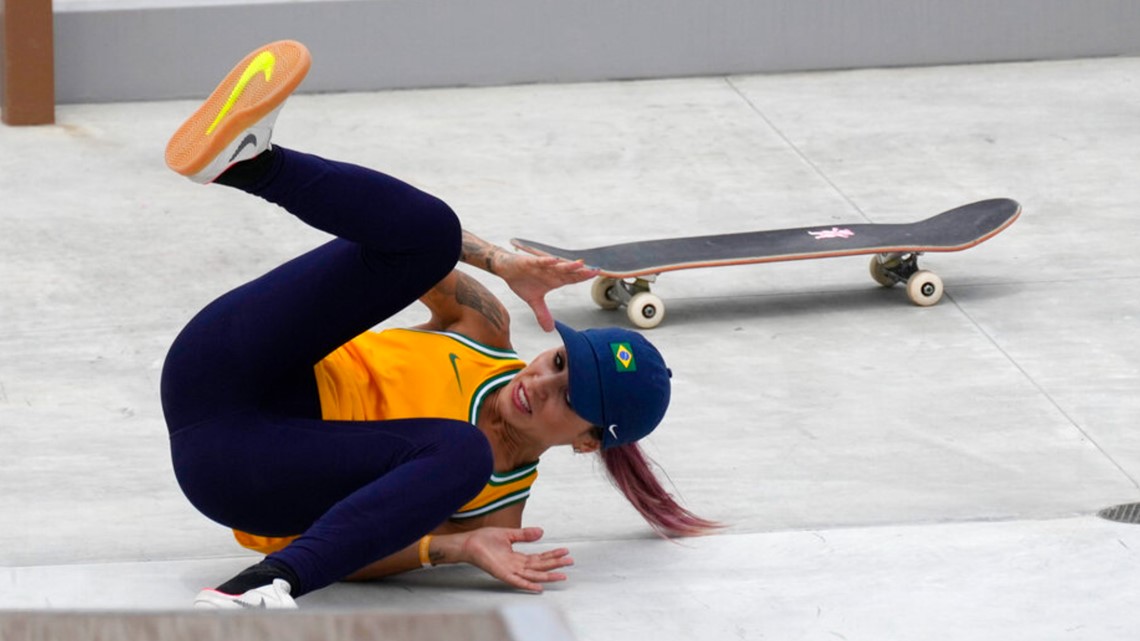
There's a reason why the podium for the women's street skate boarding event included two 13-year-olds: it's because as you get older, falling hurts a heck of a lot more than when you were young, pliable, fearless and still on your parent's health insurance.
However, if the skateboarding events at the Olympics inspired you go to test out your park skills, there are ways to ensure your fall won't lead to unexpected emergency room bills.
The first step is to wear a helmet (duh) as well as wrist pads, knee pads and whatever else you think you need. Like with gymnastics, when you fall, don't break your fall with your hands -- this only leads to a broken wrist.
Instead, Surfer Today (which also offers skateboarding tips), recommends doing a body roll or controlled fall, where you absorb the impact with your back and shoulder.
Practice this move in the grass before hitting the skate park.
Here's a closer look at what it looks like and the technique:
Mountain biking

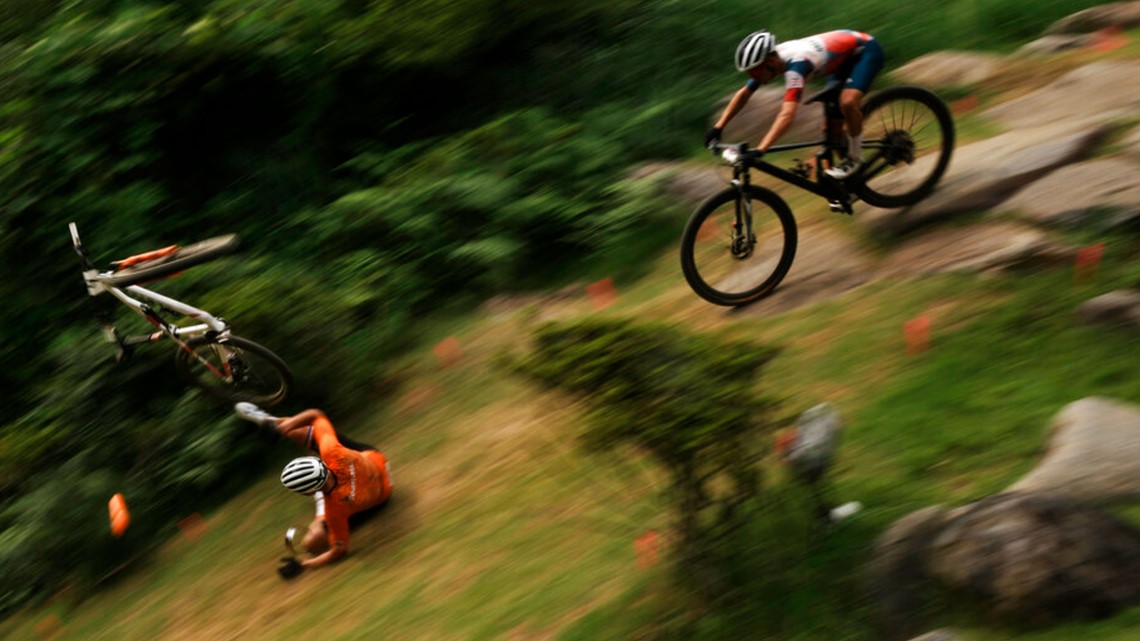
Here's an Olympic event that's actually super easy for Coloradans to do, and it has its own rules about how to safely fall.
Like skateboarding, the biggest piece advice is to wear a helmet (again, duh), as well as cycling gloves, since hand injuries are the worst.
DIYMountainBike.com says if you're about to fall, the best thing to do is "tuck, roll and relax." In other words, tuck your head to your chest to hopefully ensure it doesn't hit the ground first, roll instead of slide (because road/trail rash is the worst) and relax and don't let your body resist gravity, as much as it wants to.
Here's a longer primer on what to do when you inevitably wipe out while mountain biking:
Climbing

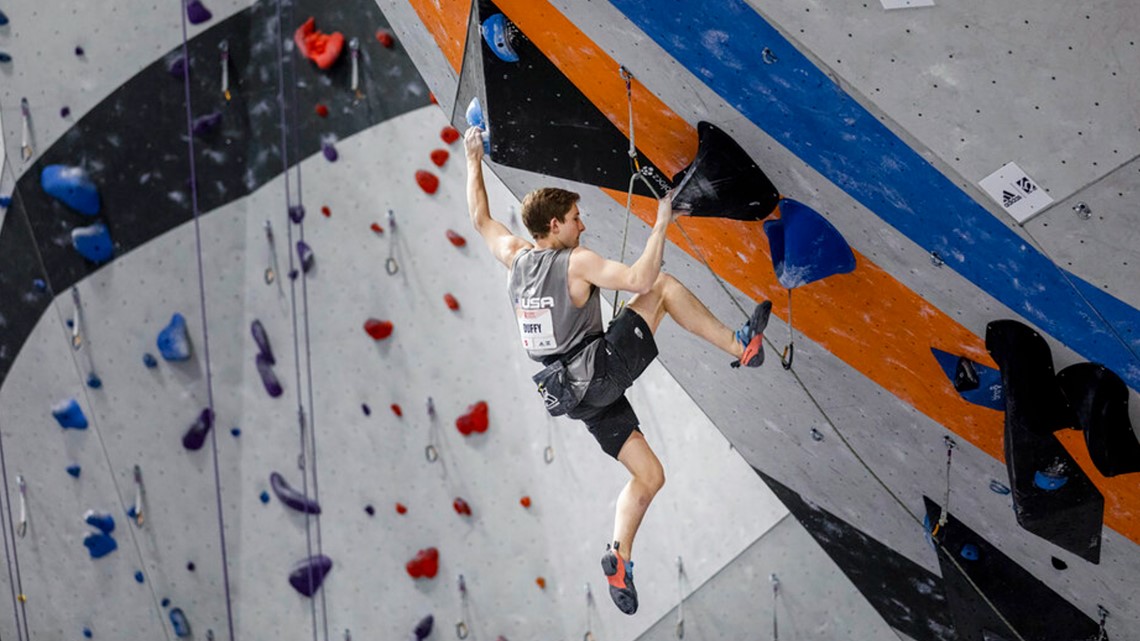
This is another very Colorado sport that now happens to be in the Olympics. And, Climbing Magazine says, falling happens to be integral to participating.
"Falling is essential for advancing as a rock climber," an article all about how to safely fall says. "The saying goes, 'If you aren’t falling, you aren’t trying hard enough.'"
Cool, cool. The magazine says when climbers fall, the first thing they should do is to shout "falling!" as they peel off the wall, and to warn their belayer about what just might happen. From there, the belayer will lock their device and brace themselves to ensure they catch their partner.
The next step for climbers during a fall is to relax the body and legs, and to keep limbs slightly bent and ready to absorb any impact. Hands should be to the side or up to ensure balance, as well as to avoid scraping them against the wall.
A big "no no" for climbers is to fall with the rope behind their foot or legs. This could cause nasty rope burn at best, and could flip you upside down at worst. Also avoid grabbing anything to catch your fall -- let the rope and belayer do their jobs, and just hold on for the ride.
Here's a primer on safely falling while rock climbing:
Horseback riding

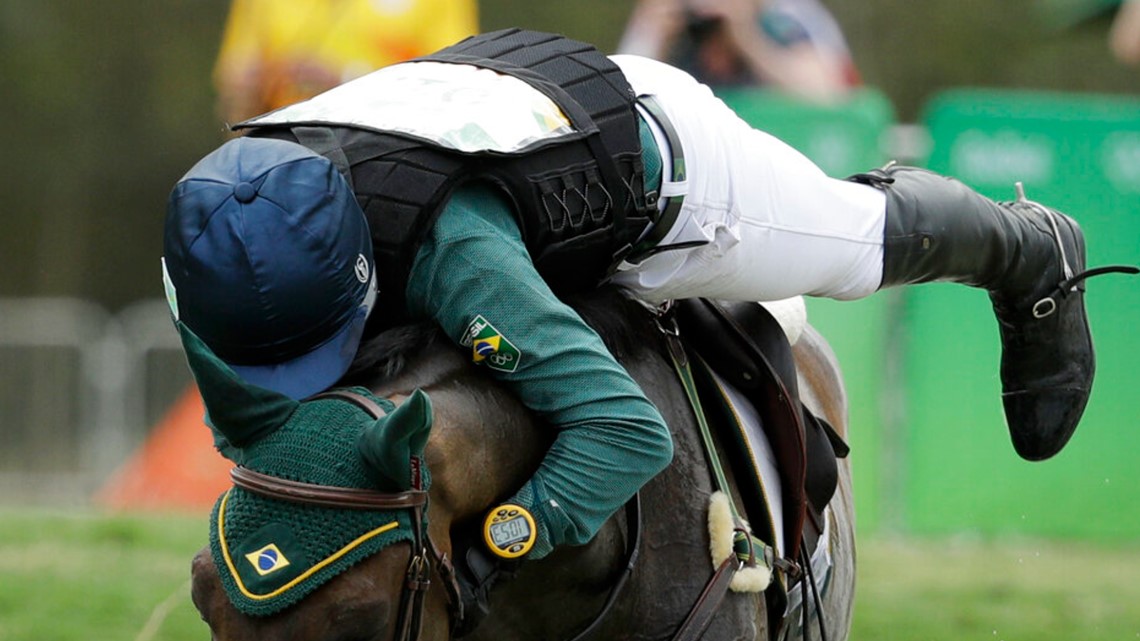
Given the Centennial State's wild west heritage, equestrianism may perhaps be the most Colorado event of them all (other than surfing).
Wiping out in this event is unique because it involves both yourself and a majestic animal.
One thing you should never do, according to TheHorse.com, is to hold onto the horse while falling. Instead, let it go -- someone will catch the horse, and you'll both be safer because of it.
Like we discussed above, during a fall, this website recommends absorbing your impact with your shoulder instead of your wrist, and to relax as much as possible to let gravity do the work. From there, roll away from the horse with the hands up.
Also, just like with mountain biking, equestrians should tuck their heads into their chest to hopefully prevent the neck from taking the brunt of the impact.
Here's a video about how to safely fall from a horse:
Editor's note: If you made it this far and didn't think we were being sarcastic about surfing being the most Colorado of sports, then here is a note saying that this was a sarcastic comment.
SUGGESTED VIDEOS: Latest from 9NEWS

